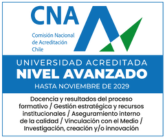In the educational field of the XXI century, the linking of the different disciplines is required to provide answers to the problems of daily life. From this integrating imperative of knowledge, transdisciplinarity favors the learning of both teachers and students. Our objective is to design learning situations through the STEAM teaching approach to favor the development of transdisciplinary thinking. To achieve this objective, we carried out a qualitative study, the study adopts participatory action research. The researchers correspond to professors of the first basic cycle and academics from the university associated with the areas of pedagogy, engineering, technology, mathematics and the arts. The findings establish that the predominant knowledge, for the construction of didactic devices, is related to the Mapuche culture and the territoriality of the school. From there the STEAM areas are interwoven, to give rise to the situated work material, which aims to promote scientific knowledge and collaborative skills for learning and problem solving.
Keywords: transdisciplinary; STEAM; learning community.



